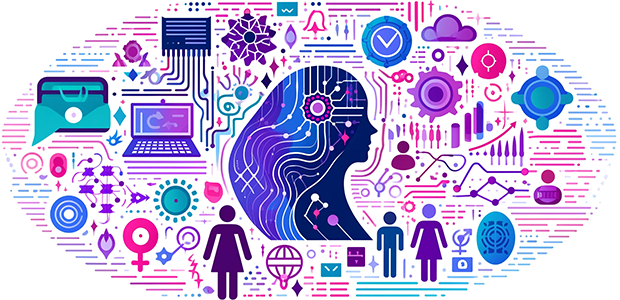
Gen AI ‘a unique opportunity’ to level the playing field for Women in Tech
The proliferation of Generative AI (GenAI) in the workplace has helped level the playing field for women in technology, according to a new study from Boston Consulting Group.
68% of women in the tech industry reported using a GenAI tool more than once a week, compared to 66% of men. This highlighted that women were on par with, and in some cases outpacing, men in terms of GenAI adoption. This trend was particularly evident among senior women in tech functions such as engineering, IT, customer support, sales, and marketing.
These findings were detailed in BCG’s "Women Leaders Are Paving the Way in GenAI" report, which surveyed over 6,500 women and men employees in the UK, US, Germany, India, and Japan.
The report suggested that senior women were just as, if not more, aware of how critical GenAI could be in the workplace compared to men, while junior women tended to be less aware. BCG proposed that this seniority gap could be due to junior women having less access to networks and discussions where GenAI strategy was formed, and they were not as equally represented in GenAI initiatives as junior men.
Sai Bendi, Software Development Manager, Encompass Corporation, commented: “The gender gap in technology is an issue that is rightly still front and centre, with the need for continued action apparent. In tandem with the increased spotlight on gender diversity that we are seeing, there is no doubt that the acceleration and development of new technologies, such as Generative AI, has the potential to act as a catalyst for positive change as women are presented with opportunities to use the tools at their disposal to their advantage when it comes to boosting their skills and confidence.
"In our increasingly digital-first landscape, the possibilities afforded by technology such as AI provide the perfect chance for women to take the mantle when it comes to focusing on their own learning and development to position themselves to play a part in the advancement of critical innovation. Women must believe in themselves and embrace their skills to be at the forefront of the AI revolution.
“Businesses, in turn, must show commitment to supporting the development of AI – and wider technology – skills for their employees by investing in training courses and support networks that will enable them to drive forward projects with purpose. This is essential in order for businesses and individuals to keep pace with a wide array of technological advancements, and will allow those currently within the industry to progress, as well as attract a new generation of talent that can help to influence the overall gender gap.”
However, the findings revealed that senior women in nontechnical roles had less confidence in GenAI skills than their male counterparts, with junior women even less confident.
“Fewer than 30% of middle managers in tech today are women,” said Maria Barisano,” a managing director and partner at BCG and a co-author of the report. “GenAI presents a unique opportunity to narrow the gender gap in the tech industry, but it requires proactive actions from both companies and the women employed by them.”

